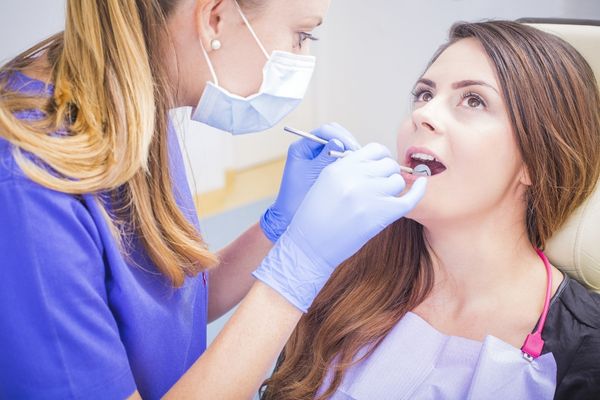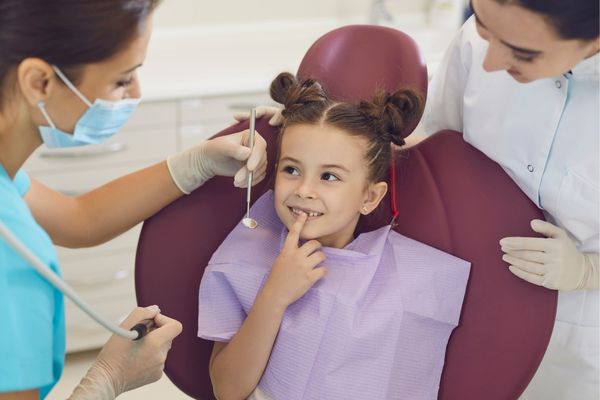
Dental Care Across the Lifespan: From Kids to Seniors
Dental Care for All Ages
Maintaining proper dental care is essential for people of all ages, from infants to the elderly. Each stage of life presents its unique oral health challenges and requirements. This blog will delve deep into offering valuable dental care advice and methods tailored to individuals of different age groups, including children, teenagers, adults, and seniors.
Children’s Dental Care (Ages 0–12)
Children’s dental needs change as they mature and develop. Early adoption of a proper oral hygiene regimen paves the way for lifelong dental and gum health. Parents ought to start gently washing their baby’s gums with a soft, wet cloth even before the first tooth erupts. It’s recommended to use a small, soft-bristled toothbrush and a very small amount of fluoride toothpaste after teeth begin to emerge, which typically takes around six months. Children can advance to using a pea-sized amount of toothpaste around the age of three.
The need of frequent dental checkups and the appropriate way to brush is something that parents must stress to their children. It is best to supervise a child’s tooth brushing till they are about 8 years old to make sure they are doing it properly. Establishing good dental health for children and avoiding cavities may be greatly helped by establishing healthy eating habits and restricting sugary snacks.

Teenagers’ Dental Care (Ages 13–19)
Teenagers’ oral health presents special difficulties. They could ignore adequate dental care due to their hectic schedules and hormonal shifts, which could have long-term effects. Parents should keep promoting healthy oral hygiene practises to their children, such as twice-daily brushing, flossing, and biannual dental exams.
Braces and other orthodontic procedures are frequently used on teenagers at this time. Teenagers who get braces must take additional care to keep their teeth and equipment clean. Reaching between wires and brackets can be made easier using floss threaders and special orthodontic brushes. Avoiding sticky or hard foods can lower the risk of dental crises and avoid damage to braces.
Adult Dental Care (Ages 20–64)
When people reach maturity, they frequently juggle several commitments, and dental care may occasionally suffer as a result. But keeping good dental health is important for general wellbeing. Along with twice-yearly dental exams, regular brushing and flossing are still basic dental hygiene practises. Dentists can see possible problems early on and suggest suitable solutions during these appointments.
Adults also need to be conscious of behaviours like smoking and bruxism, which can damage teeth. Smoking not only discolours teeth but also raises the risk of gum disease and oral cancer. Bruxism can result in worn-down teeth, jaw discomfort, and migraines.
A balanced diet that is low in acidic and sugary foods is good for tooth health. Calcium, vitamin D, and phosphorus are nutrients that are crucial for keeping healthy teeth and bones. Maintaining proper hydration is also essential because it helps prevent dry mouth, which can lead to tooth damage and odorous breath.

Seniors (age 65 and over) who need dental care
People get more prone to various oral problems as they get older. Seniors often struggle with dry mouth, gum disease, and sensitive teeth. To monitor oral health and address any problems as soon as they arise, regular dentist checkups are essential.
Senior citizens should continue to routinely brush and floss while using fluoride-containing toothpaste to prevent tooth decay. Electric toothbrushes and flossing tools might be useful if mobility is a problem. Hydrating drinking water and utilising saliva substitutes can help those with dry mouth, which can be brought on by some drugs. This will make them feel better and protect their teeth.
Maintaining good oral health is a lifetime responsibility that changes as we age. Laying the groundwork for healthy teeth and gums later in life begins with good oral hygiene practises in infancy. People of all ages may keep their smiles bright and healthy for the duration of their lives by maintaining regular dental checkups and preventive measures. Remember that a healthy mouth is the foundation of a beautiful smile! Therefore, let’s adopt healthy dental hygiene habits at every stage of life and reap the rewards of a bright smile and top oral health for many years to come.




